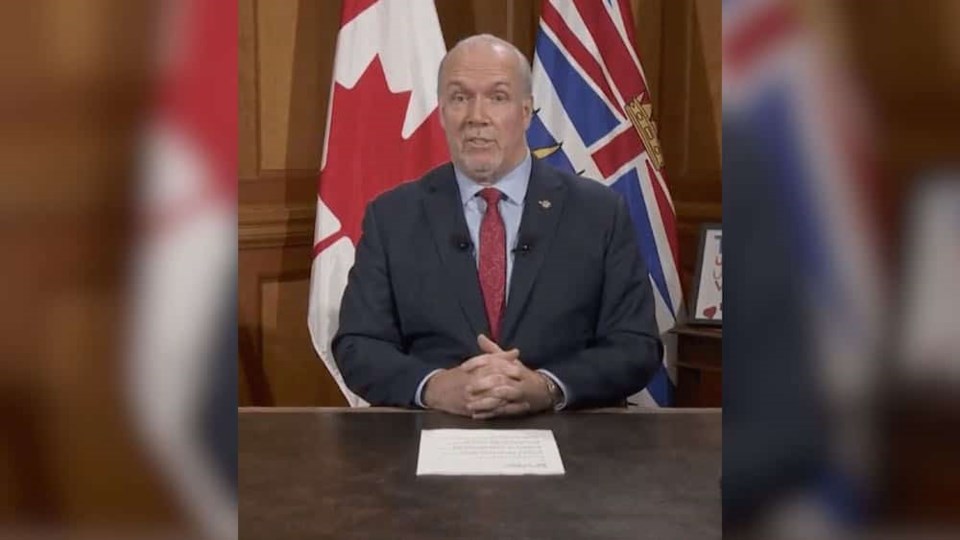The Province of British Columbia has formally extended the provincial state of emergency, allowing health and emergency management officials to continue to use extraordinary powers under the Emergency Program Act to support the Province's COVID-19 pandemic response.
The state of emergency is extended through the end of the day on Dec. 22, to allow staff to continue to take the necessary actions to keep British Columbians safe and manage immediate concerns and coronavirus (COVID-19) outbreaks.
A provincial declaration of a state of emergency allows the Province to implement provincial emergency measures and allows access to assets that may be necessary to prevent, respond to or alleviate the effects of an emergency. This is a temporary measure authorized by the Emergency Program Act.
"We’re all feeling the effects of needing to distance from friends and loved ones, but the surest way to keep our families safe is by doing the right thing for a little longer,” said Premier John Horgan. “So rather than finding a way around the rules, I encourage everyone to follow the intent behind the public health orders, which is to get everyone to step back for a little while so we can reduce cases, save lives and work toward visits with family and friends again in a safe way.”
B.C. is already in the longest state of emergency in provincial history. Now, it has officially been in place for over eight months.
Emergency Program Act
On Nov. 24, Mike Farnworth, Minister of Public Safety and Solicitor General, introduced a mask enforcement order under the Emergency Program Act, requiring masks in public indoor settings for people over the age of 12. The Province continues to urge all British Columbians to follow the orders and guidance of public health officials, including limiting non-essential travel to combat rising cases and help avoid further restrictions.
“Most British Columbians continue to do the right thing, and our collective efforts are something to be proud of,” said Farnworth. “Having said that, I can assure you this government will not hesitate to take further action against those who insist on putting the lives of others at risk. The orders are in place to keep people safe, and we will use those legal tools when necessary to ensure public safety.”
The Province continues to use, with the support of police and other enforcement officials, measures under the Emergency Program Act to limit the spread of COVID-19, including issuing tickets for owners or organizers contravening the PHO’s orders. Between Aug. 21 and Dec. 4, 2020, 194 violation tickets were issued, including:
- 36 $2,300 tickets to owners or organizers contravening the PHO’s order on gatherings and events;
- 16 $2,300 violation tickets for contravention of the PHO’s Food and Liquor Serving Premises Order; and
- 142 $230 tickets issued to individuals who refused to comply with direction from law enforcement.
The Ministry of Public Safety and Solicitor General is continually working to align Emergency Program Act enforcement orders with those of the restrictions enacted by the PHO.
Additionally, since the pandemic began, police agencies in British Columbia have issued 70 violation tickets to individuals who were in contravention of the federal Quarantine Act, totalling $76,216. The purpose of the Quarantine Act is to protect public health by taking comprehensive measures to prevent the introduction and spread of communicable diseases.
On July 10, 2020, the COVID-19 Related Measures Act came into force, enabling provisions created for citizens and businesses in response to the COVID-19 pandemic to continue as needed should the provincial state of emergency end.
The extension of the provincial state of emergency is based on recommendations from B.C.‘s health and emergency management officials. The original declaration was made on March 18, 2020, the day after Dr. Bonnie Henry, provincial health officer, declared a public health emergency.




